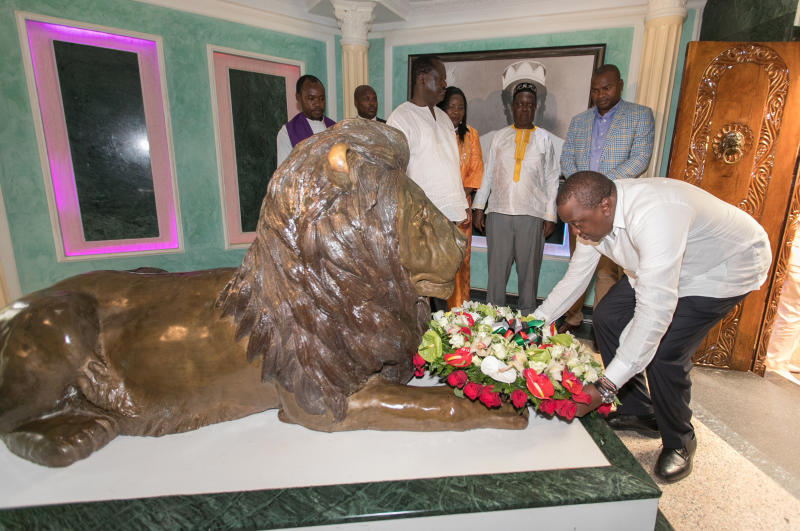×
The Standard e-Paper
Kenya’s Boldest Voice

President Uhuru Kenyatta’s visit to Bondo, the ancestral home of Raila Odinga marked an important turning point in their bumpy family relationship dating back to 1952.
The president yesterday visited Kang’o Ka Jaramogi, the mausoleum of Raila’s father, Jaramogi Oginga Odinga in a special act that cements their new-found political friendship.